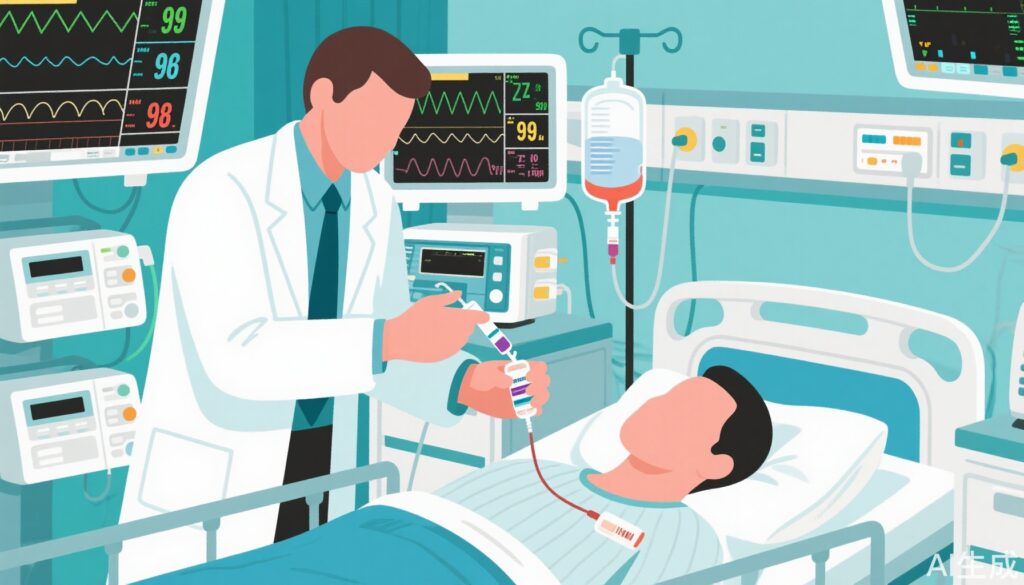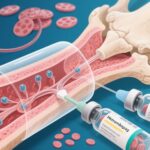Background and Aims
Septic shock is a critical condition characterized by severe infection leading to circulatory and cellular metabolism abnormalities, resulting in high mortality. In this context, steroid supplementation has been investigated as a potential therapy to improve outcomes. However, its use remains controversial due to inconsistent results across heterogeneous patient populations. Cirrhotic patients experiencing septic shock often develop relative adrenal insufficiency, which manifests as a poor response to vasopressors and worsened prognosis. This subgroup may particularly benefit from early administration of low-dose hydrocortisone, which could help reverse shock and reduce mortality. This study aimed to evaluate the efficacy of low-dose hydrocortisone in improving survival and shock resolution in cirrhotic patients with septic shock.
Methods
This was a double-blind, randomized, placebo-controlled multicenter trial conducted in adult patients with cirrhosis admitted to intensive care units with septic shock. Patients were randomized to receive intravenous hydrocortisone—initially 100 mg bolus followed by a continuous infusion of 200 mg over 24 hours—or placebo. Treatment lasted for a minimum of 3 days, followed by a tapering period of 3 to 7 days depending on the timing of shock resolution. The primary endpoint was all-cause mortality at 28 days post-enrollment. Secondary endpoints included shock resolution rate, time to shock resolution, incidence of shock relapse, new shock episodes, and superinfections during hospitalization. Safety assessments focused on metabolic disturbances such as hypo- and hyperglycemia.
Results
The trial was terminated early after enrolling 83 patients due to slow recruitment. Most patients required low-to-moderate doses of vasopressors. Analysis showed no statistically significant difference in 28-day mortality between the hydrocortisone group (35%) and placebo group (39.5%) (p=0.84). Shock resolution rates were also similar (85% vs. 72.1%; p=0.25), as was the median time to shock resolution—3 days (interquartile range [IQR] 2.2 to 4) in the hydrocortisone group versus 4 days (IQR 2 to 7.5) in placebo. Notably, a higher proportion of patients receiving placebo died from refractory shock (47.6%) compared to those receiving hydrocortisone (8.7%). There were no significant differences between groups in the frequency of shock relapse, new shock episodes, or bacterial and fungal superinfections during hospitalization. Hypoglycemia and hyperglycemia events were more common in the hydrocortisone-treated patients.
Multivariate analysis identified the severity of acute-on-chronic liver failure (ACLF) at inclusion and inadequate empirical antibiotic therapy as independent predictors of 28-day mortality (hazard ratio 6.40; 95% confidence interval 3.21–12.79).
Conclusions
Supplemental low-dose hydrocortisone did not confer a survival benefit or faster shock resolution in cirrhotic patients with septic shock who required low-to-moderate vasopressor support. Although hydrocortisone was associated with more frequent glycemic disturbances, it may reduce deaths due to refractory shock. The findings underscore the importance of managing ACLF severity and ensuring appropriate antibiotic therapy to improve outcomes in this vulnerable population.
Clinical Implications and Future Directions
The management of septic shock in cirrhotic patients remains challenging. This study suggests that routine administration of low-dose hydrocortisone is not effective for improving short-term mortality or accelerating shock reversal in patients with low-to-moderate vasopressor requirements. However, the potential benefit in reducing refractory shock mortality warrants further investigation. Future research should explore patient subgroups, dosing strategies, and timing of corticosteroid therapy, as well as integrated approaches addressing liver failure and infection control to optimize outcomes.
Trial Registration and Reference
This trial was registered with the University Hospitals Leuven (S55168), EUDRACT (2010-024273-38), and ClinicalTrials.gov (NCT02602210).
Reference:
Meersseman P, Hernández-Tejero M, Diaz JM, et al. Low-Dose Hydrocortisone in Cirrhotic Patients With Septic Shock: A Double-Blind Randomised Placebo-Controlled Trial. Liver Int. 2025 Sep;45(9):e70257. doi:10.1111/liv.70257. PMID: 40757786; PMCID: PMC12320571.


